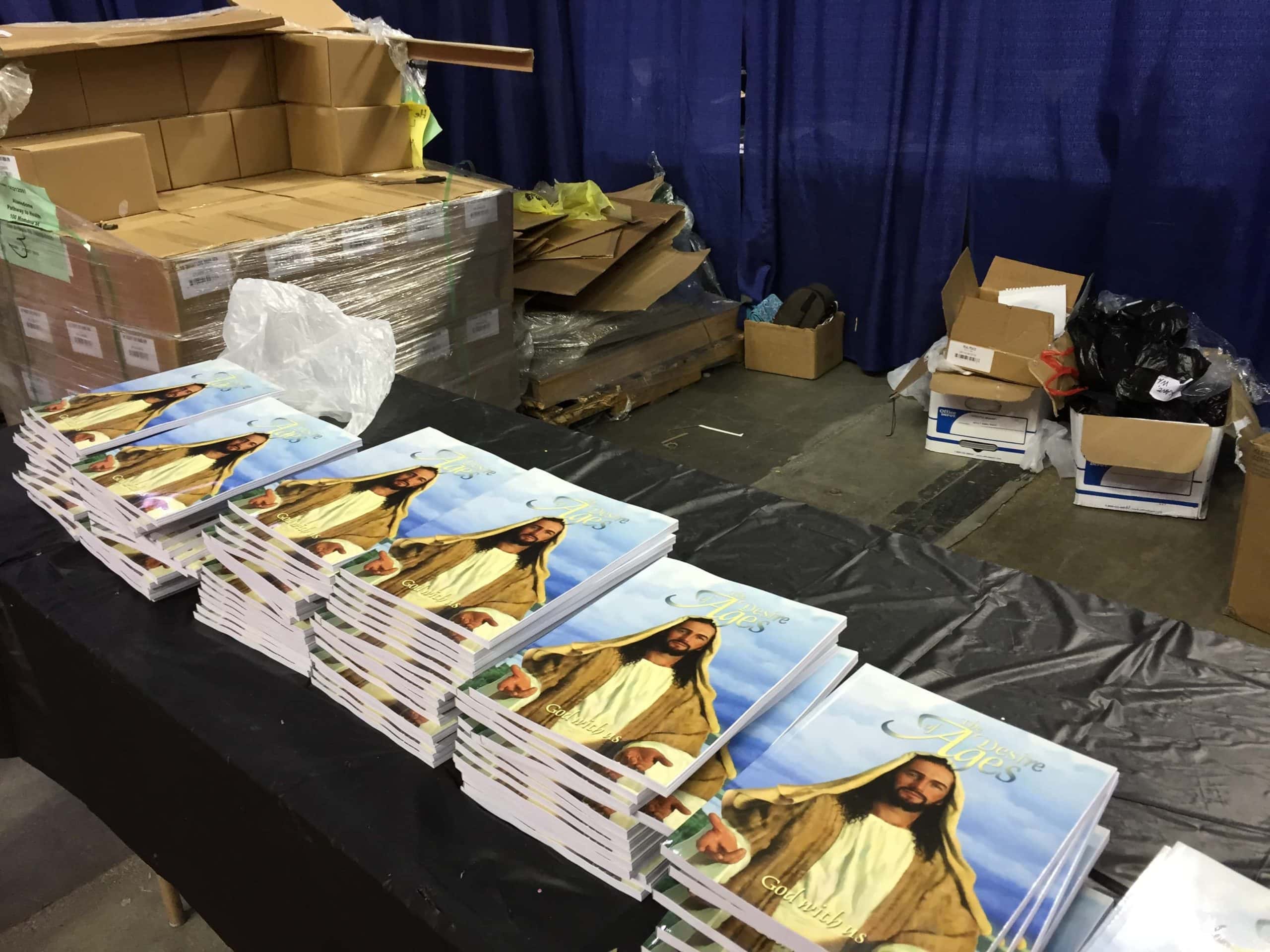
Two numbers — 6,192 and $20 million —took the spotlight at the recent free clinic in a San Antonio stadium.
But two other figures may be just as important: 23,180 and $54,615.
The 6,192, of course, refers to the number of people who received free Adventist healthcare at the Alamodome stadium during the three-day event earlier this month. The value of the medical and dental care topped $20 million.
But as the thousands of people stood in line and left after treatment, they also picked up 23,180 pieces of Seventh-day Adventist literature with a retail value of $54,615, said Bill Krick, who helped coordinate the distribution.
That translates to an average of nearly four books, magazines, and tracts per patient.
Almost half of the literature — about 10,000 copies — was presented to patients in gift bags, Krick said. The rest appears to have been picked up voluntarily by patients on their way out.
Krick, who volunteered with chaplaincy services at the stadium and works as literature ministries director for the Adventist Church’s Central California Conference, said he was astonished at people’s willingness to accept literature.
“People who come to us with needs really are wide open to receiving literature and reading it,” he told the Adventist Review.
“We found that they were interested as they waited in lines and waiting areas — they had nothing else to do,” he said. “We found that they were interested as they came through chaplaincy. And we found that they were interested when they were exiting.”
Read: “Surprise Stories Emerge From Free Clinic in San Antonio”
Krick said chaplaincy services, whose volunteers prayed and spoke with patients, decided against filling bags with literature or handing them to people. Instead, volunteers placed piles of books on tables for people to take at their own initiative.
“We were shocked,” Krick said. “Nearly every patient took literature, and many took as much as we would allow them to take.”
The literature, available in English and Spanish, covered a range of titles, including: Peace — Above the Storm (Steps to Christ), Desire of Ages, Ministry of Healing, He Taught Love (Christ's Object Lessons), Ten Choices for a Full Life, Radiant Living (a health magazine compiled from Ellen G. White’s writings), Real Heroes (Spanish children's Bible stories), and four titles of GLOW tracts. Krick is a driving force behind the popular tracts, which reached a milestone of 45 million copies in circulation in February.
Read: “GLOW Passes Milestone of 45 Million Copies”
The literature was donated, among others, by Pacific Press and Adventist-Laymen’s Services & Industries, or ASI. The main organizer of the free clinic was Your Best Pathway to Health, a service of ASI.
Pacific Press president Dale Galusha expressed gratitude to God that the Nampa, Idaho-based publishing house had been able to ship four pallets of literature to Texas at Krick’s request.
“From time to time we receive special donations from individuals to use for special projects,” Galusha said. “I am always amazed how the Lord’s timing is perfect. When Bill made the request, we had a special donation that helped us honor this request.”
Read: “How I Saw Jesus’ Hands in San Antonio”
San Antonio may offer a lesson in sharing literature, including at the next free clinic that will be organized by Your Best Pathway to Health in Spokane, Washington, in early August.
Krick said that even though he is a fan of mass distribution, the San Antonio clinic showed that allowing people to take books and magazines on their own was an effective use of literature. Mass distribution, he said, reaches a small percentage of people, while 100 percent of the people at the San Antoio stadium chose to attend because they recognized they had some sort of need.
“This must account for the enormous amount of literature which patients eagerly chose to take from the exit tables,” he said.